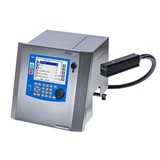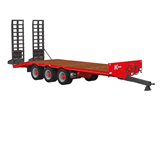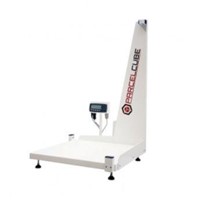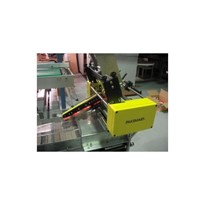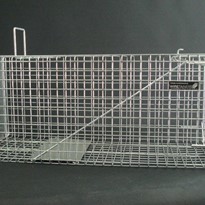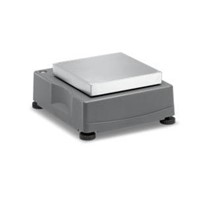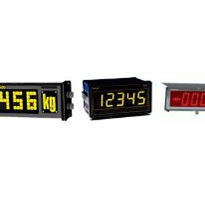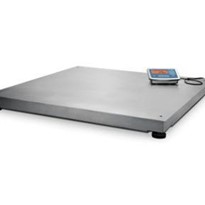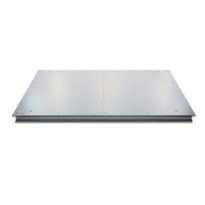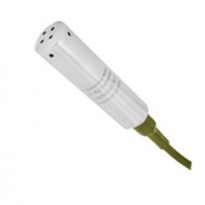How Accurate Are Animal Weighing Scales?
Animal weighing scales are known for their accuracy. Unlike regular household scales, they are built to accommodate the unique needs of animal weighing, and are thus specifically designed to accurately measure the weight of animals, ranging from small pets like cats and dogs, to larger animals such as horses, livestock, and other zoo species. A major reason vet scales provide greater accuracy than standard digital scales is how weight is distributed. Humans stand on a small platform with two feet, while animals spread their weight across four, requiring a larger and more stable surface for precise measurements. Because animals rarely stand or sit still on a scale, veterinary models often include a dynamic weighing mode. This feature compensates for movement by calculating the average force exerted over time, delivering a stable and reliable weight reading.
Why Accurate Weighing is Important in Veterinary Care
Administering medication or diagnosing health conditions without knowing an animal’s exact weight can lead to errors that may compromise its well-being. As such, understanding the importance of precise weighing in veterinary practice is critical. Accurate weight measurements play a vital role in veterinary care by helping professionals make informed decisions when it comes to the following:
- Dosage Calculations: Accurate weight measurement is critical for determining the correct dosage of medications, as many veterinary drugs are prescribed based on body weight. Even a small miscalculation can lead to under-dosing, which may render the treatment ineffective, or overdosing, which can cause harmful side effects. This is especially important when administering anaesthesia, antibiotics, or pain relief medications, where precision is crucial to an animal’s safety, health and recovery.
- Health Monitoring: Weight is one of the most fundamental indicator of an animal’s overall health and can provide early warnings for underlying medical conditions. Unexpected weight loss may signal issues such as parasites, metabolic disorders, or serious illnesses, while unexplained weight gain can indicate conditions like heart disease or hormonal imbalances. By tracking an animal’s weight over time, veterinarians can detect health concerns early and implement appropriate treatment plans before conditions worsen.
- Nutritional Management: Proper nutrition is vital for both pets and livestock, and weight tracking plays a key role in ensuring balanced diets. Overfeeding can lead to obesity, increasing the risk of diabetes, joint issues, and heart disease, while underfeeding may result in malnutrition and weakened immunity. Regular weight monitoring helps veterinarians and animal caretakers adjust feeding plans to maintain optimal health, ensuring that animals receive the right nutrients for their specific needs.
The Benefits of Animal Weighing Scales
Accurate weight measurement plays a very important role in responsible animal care and livestock management. Reliable animal weighing scales provide essential data for various applications, benefiting pet owners, breeders, veterinarians, and farmers alike. Animal weighing scales are instrumental in the assistance of:
- Animal Health Monitoring: Regular weighing helps detect potential health issues early. Unexplained weight loss or gain can be an early warning sign of illness, metabolic disorders, or other medical conditions. By identifying these changes before visible symptoms appear, veterinarians can intervene sooner, improving treatment outcomes and preventing further complications.
- Breeding Practices: For breeders, maintaining accurate weight records is essential for making informed breeding decisions. Ensuring animals reach optimal breeding weights helps improve fertility rates and ensures the health of both the parent and offspring. Regular weight monitoring provides valuable data to determine the ideal breeding timeline.
- Feeding Management: Tracking weight gain helps assess feed conversion rates, ensuring animals receive the right nutrition for healthy growth. By monitoring weight trends, farmers and pet owners can make informed decisions about adjusting feed portions, preventing issues like underfeeding, malnutrition, or excessive weight gain. This approach also supports cost-effective feed management by minimising waste and improving efficiency.
- Improved Livestock Breeding Strategies: Regular livestock weighing provides insights into growth rates, performance, and overall herd health. By analysing this data, breeders can make strategic genetic selections, identifying high-performing animals for breeding while culling weaker ones. This leads to stronger herds, improved productivity, and better long-term breeding outcomes.
- Important for Veterinary Practices: In veterinary clinics, precise weight measurement is essential for accurate diagnoses, treatment planning, and medication dosing. Knowing an animal’s exact weight helps prevent dosing errors that could lead to ineffective treatment or adverse reactions. Additionally, veterinarians can use weight data to educate pet owners on maintaining a healthy weight for their animals, promoting long-term well-being for their pets.
Key Features to Look For When Purchasing Animal Weighing Scales
Animal scales come in a lot of different shapes, styles and sizes, and the best scales for one vet clinic may not necessarily be the best kind for you. So before making your purchase, factor in the following considerations:
- Weight Capacity & Size: Always consider the weight capacity to ensure it suits the animals you treat. Scales for smaller animals, such as cats, small domestic dogs, and birds, typically have a capacity of up to 20kg, while scales for larger animals, like livestock, often exceed 300kg. Additionally, a stable and appropriately sized platform is essential to keep animals comfortable during the weighing process.
- Durability & Material: Animal weighing scales must be durable, especially in high-traffic clinics or when handling larger animals. Washdown steel is a popular choice due to its strength, easy cleaning and easy maintenance, making it ideal for veterinary environments. For outdoor or farm use, waterproof scales are essential to withstand varying conditions. Whether for small pets or livestock, durability ensures long-lasting performance in demanding environments.
- Precision & Accuracy: Precision is a critical factor in any veterinary scale. High-sensitivity scales are crucial for weighing small animals, detecting even the slightest weight changes. Digital readouts provide greater accuracy than manual scales, making them the preferred choice for veterinary clinics.
- User Friendly Interface & Displays: During busy hours or emergencies, veterinarians need to have quick and accurate weight readings. A user-friendly interface ensures smooth and efficient operation, preventing delays. Large digital displays make measurements easy to read, reducing human errors, while simple controls allow for quick calibration and adjustments, keeping the focus on animal care.
A&D Weighing AW-300 Animal Weighing Scales
The AW-300 Animal Weighing Scale provides precise weight measurements for animals up to 300kg. Built for durability, this scale features a low-profile, rigid construction and a lightweight, portable body built from strong, easy-to-clean steel. Its low-profile, sturdy design offers excellent stability, while the included non-slip rubber mat enhances comfort and safety. The large LCD display with 25mm character height ensures clear visibility, while the AD-4406A indicator can be wall or desk mounted using the included bracket. It arrives pre-calibrated for immediate use, and includes a hold function that allows for accurate animal weighing.



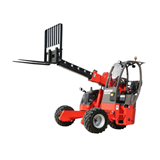

-160x160-state_article-rel-cat.png)
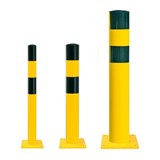
-160x160-state_article-rel-cat.png)
-160x160-state_article-rel-cat.png)


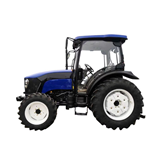
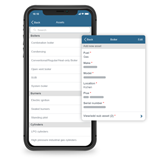

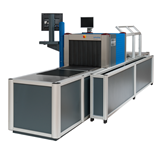



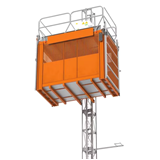
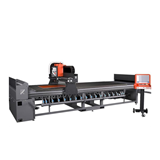



-160x160-state_article-rel-cat.png)


